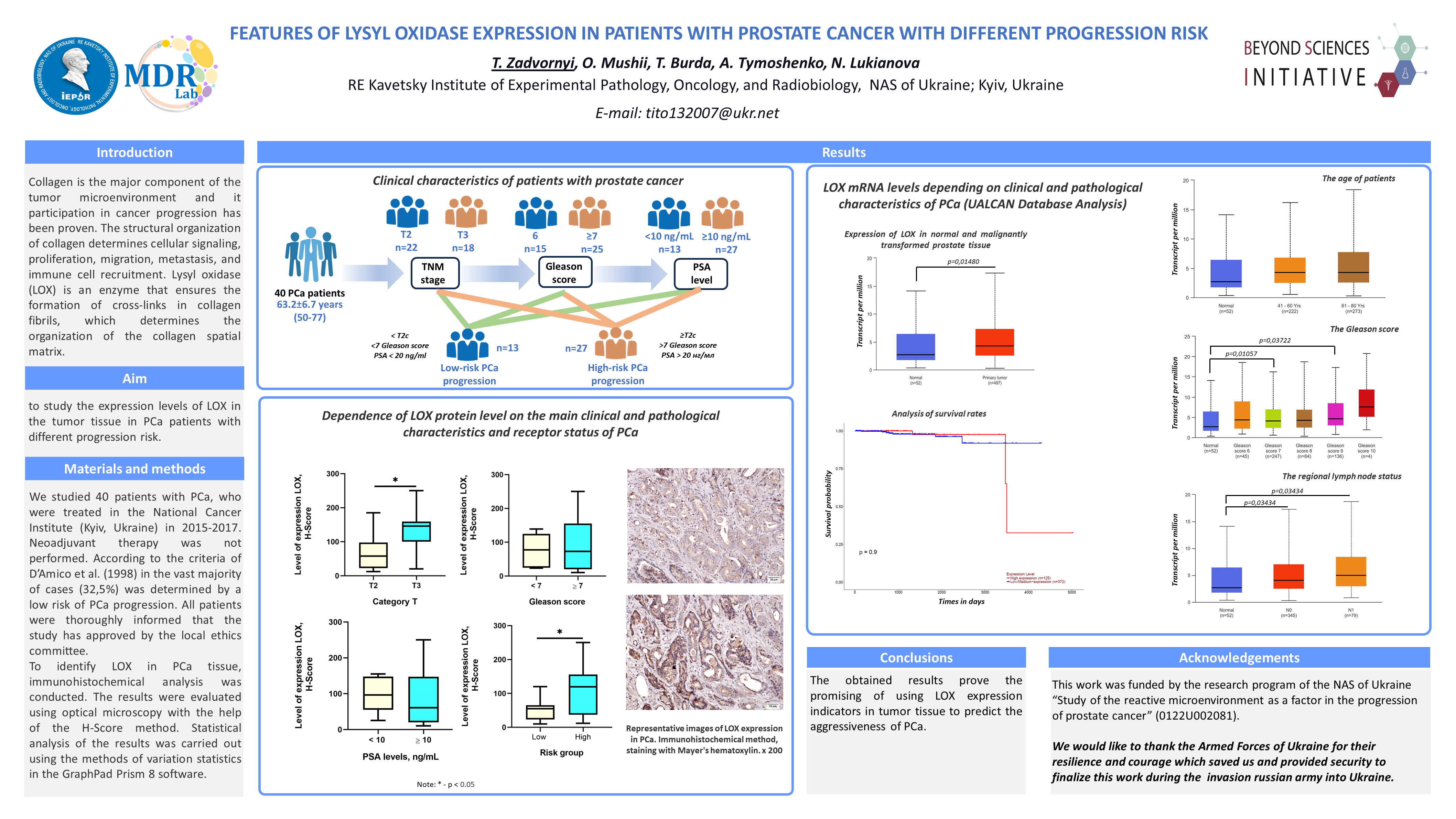Taras Zadvornyi
Conference 2024 Poster
Poster Title
FEATURES OF LYSYL OXIDASE EXPRESSION IN PATIENTS WITH PROSTATE CANCER WITH DIFFERENT PROGRESSION RISK
Authors and Affiliations
T. Zadvornyi, О. Mushii, T. Burda, A. Tymoshenko, N. Lukianova
R.E. Kavetsky Institute of Experimental Pathology, Oncology and Radiobiology, NAS of Ukraine, Kyiv, Ukraine
Abstract
Background
Collagen is the major component of the tumor microenvironment and it participation in cancer progression has been proven. The structural organization of collagen determines cellular signaling, proliferation, migration, metastasis, and immune cell recruitment. Lysyl oxidase (LOX) is an enzyme that ensures the formation of cross-links in collagen fibrils, which determines the organization of the collagen spatial matrix. The aim: to study the expression levels of LOX in the tumor tissue in PCa patients with different progression risk.
Methods
We studied 40 patients with PCa, who were treated in the National Cancer Institute (Kyiv, Ukraine) in 2015-2017. Neoadjuvant therapy was not performed. All patients were thoroughly informed that the study has approved by the local ethics committee. To identify LOX in PCa tissue, immunohistochemical analysis was conducted. The results were evaluated using optical microscopy with the help of the H-Score method. Statistical analysis of the results was carried out using the methods of variation statistics in the GraphPad Prism 8 software.
Results
The LOX expression indicators in the tumor tissue were 2.1 times (p < 0.05) higher in patients with the T3 category for TNM-classification compared to patients with locally advanced PCa. A significant difference in LOX expression indicators in the PCa cases of different Gleason score or PSA levels was not detected. Analysis of the results showed that the tumor tissues of patients with high PCa progression risk was characterized by a significantly higher level of LOX expression (2.2 times, p <0.05) compared with patients with low progression risk.
Conclusions
The obtained results prove the promising of using LOX expression indicators in tumor tissue to predict the aggressiveness of PCa.


Leave A Comment